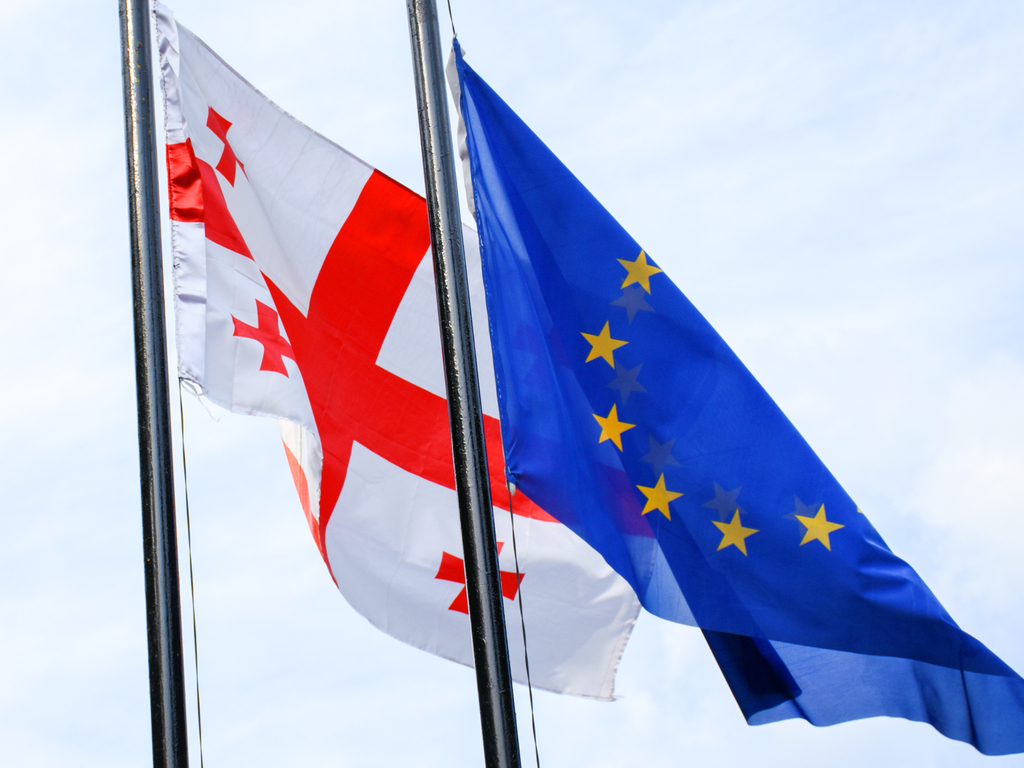Kakha Gogolashvili, Senior Research Fellow and Director of EU Studies at GFSIS (Georgia)
The European Parliament intends to call for the creation of a new common economic space between the EU and the countries of the Eastern Partnership, according to a draft report leaked in April. The move aims at “gradual integration” of the EaP countries to the bloc. StrategEast has asked leading non-governmental organizations and experts from Eastern Partnership countries to find out what are the implications of such a move for each country’s economy. Here are the answers from the expert on Georgia.
How well is your country prepared for such integration?
Georgia has made the integration to EU its main foreign policy priority. Indeed, the goal to be reached requires intensive work on internal policy reform and change. The reforms related to the legal and regulatory environment in practically all spheres aim at a high level of convergence to EU Acquis in energy, transport, finance, agriculture, labor rights, human rights, and so on. EU-Georgia Association Agreement (AA) demands from the country to transpose around 20% of essential parts of EU Acquis having an impact on the free movement of goods and services, i.e. acquiring a stake and gradual integration into the EU internal market. The AA chapter on the freedom of establishments also refers to the possibilities for Georgian service providers to conduct cross-border services or establish under certain conditions in the EU. From the other side, the Visa Dialogue, which at first stage brought a visa waiver for Georgian citizens visiting EU for up to three months, has the perspective (if positively developed) to expand the citizens’ movement freedoms up to the freedom of residence and work in EU. Mobility partnership, called to establish stable circular labor migration from Georgia to EU could also contribute to such an evolution in the future.
In what areas is your country’s leadership ready to maximize economic integration with the EU: in universalizing economic legislation, in removing customs barriers, in creating a single labor market?
AA and other relevant EU initiatives provide great possibilities for closer cooperation and a high degree of the functional integration in many sectors: the establishment of the DCFTA, with total removal of trade and non-trade barriers; Energy, in which the membership of European Energy Community has been granted; Transport – at this stage inclusion in the project of TEN-T extension (for all EaP countries); Security – participation in the CSDP operations and further involvement in the “structured cooperation”; Common Aviation Area agreement. Association agreement also implies for Georgia to adopt EU’s Electronic Commerce rules, which may prepare the country for its inclusion in the EU’s Digital Market. Cooperation in many other fields and sectors will be further deepened with the help of the Sectoral Dialogue on Highest Level established between EU and Georgia in 2018. Gaining access to EU’s specialized agencies and programs paves ways for the country’s functional integration into the EU’s common policies on education and science, accreditation and standardization, environmental protection, food safety, police, judiciary, many others. As a resume – Georgia has already strong instruments for conducting functional integration with EU and Common Economic Space, if established will be easily accepted and adopted by Georgia.
How would the possible “common economic space” be affected by the fact that in the Eastern Partnership, there are both countries aimed at EU membership, such as Ukraine, and there are those that directly deny this possibility as Belarus?
From the recent EP report, we can tacitly observe that the fact of the impossibility of creating of the full-fledged economic community with all six EaP states is acknowledged. At least two countries have memberships in the Customs Union contradictory to any preferential trade arrangements with European Union, or other third states. Therefore, it seems that the European Parliament will be advocating establishing a deep cooperation format for all six only in areas, where such an institutional arrangement is possible. These areas are – energy, transport, trade in services (partly), freedom of movement of workers, digital trade and digital market, sustainable development. Approximation to EU norms in all areas, where it is possible will be welcome and encouraged in such an agreement. Otherwise, the agreement Common Economic Space could base on the “concentric circles” method and offer to its parties differentiated rates of integration. The Associated EaP countries can be placed in the closest circle of integration with the EU and the rest in the second and third circles.
How would the common economic space with the EU be affected by the membership of some EaP countries in the Eurasian Economic Community led by Russia?
Obviously, membership in the Eurasian Economic Union will not allow Armenia and Belarus, not only establish free trade area with the EU but even converge their legislation and regulatory frameworks in many areas, including transport, energy, food safety, customs, taxation, etc. So, their participation in the proposed EU led Common Economic Space would be subjected to limitations. In the best case, they may join such a space, but with the provisions adopted in a mutatis mutandis way. In the worst case, Russia, exercising strong political control over them, will not allow joining at all. This does not mean that the idea will be “buried” from the beginning. At least three associated states can fully enjoy membership in such a space, with the open prospect and chances for Azerbaijan (if the country agrees to reform politically), and at some future point to Armenia and Belarus too.




